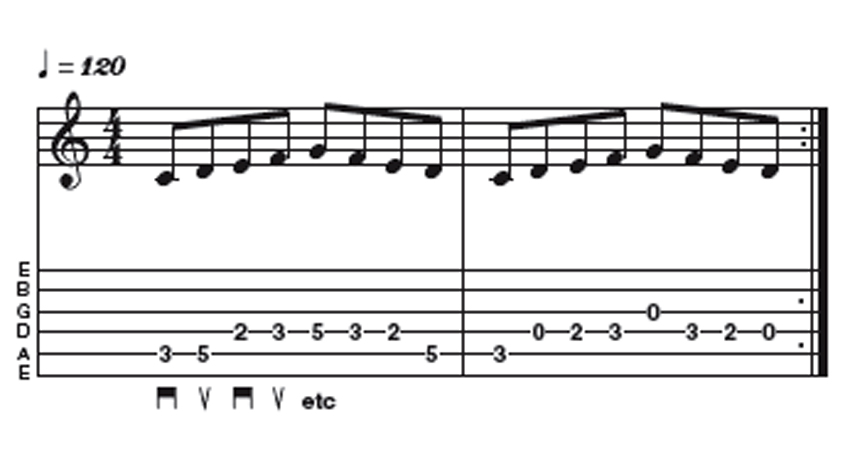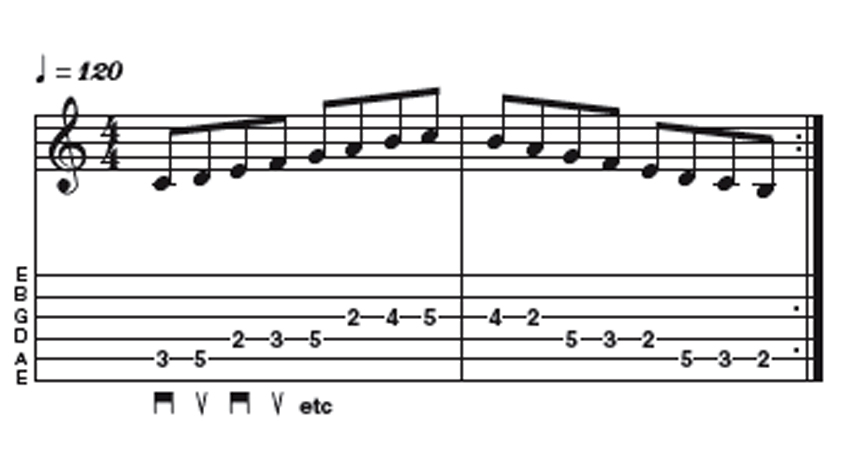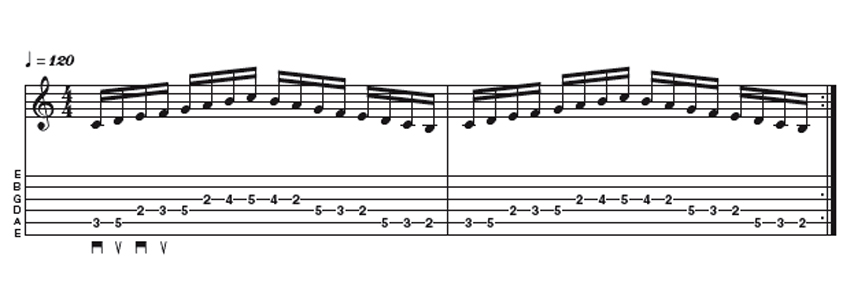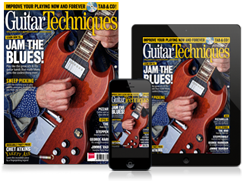How to: pick faster and more fluently
With practise exercises to help you along
Want all the hottest music and gear news, reviews, deals, features and more, direct to your inbox? Sign up here.
You are now subscribed
Your newsletter sign-up was successful
Every month, Guitar Techniques attempts to answer guitarists' playing posers and technical teasers with expert and practical advice. Here we help you pick faster and more fluently…
The question:
Dear GT
I want to do some work on my picking in order to get faster and more fluent but I don't really know what sort of thing to do. Can you give me some clues as to what I have to practise to bring about an improvement?
David
The answer:
We're assuming that this will be your first time in the speed trials, David, and so your first job should be to go and buy yourself a metronome, if you haven't got one already.
The next thing to do is to look at your picking hand and pay some attention to the way in which you're currently holding a pick. The consensus recommends that it should be gripped between thumb and first finger and that the rest of the fingers should not be clenched but loose and relaxed.
Make sure that you're not using too much of the pick, too; at speed you don't want to waste valuable time and effort lifting the pick clear of the strings all the time. So the idea here is that you should be using only the tip of the pick - around 2mm - to hit the string and no more.
Want all the hottest music and gear news, reviews, deals, features and more, direct to your inbox? Sign up here.
While you're there, look at your picking hand position, too. There are differing views on all this but we recommend that you learn to pick with your hand 'floating' and not anchored to the face of the guitar in any way.
This means that your movements are unrestricted - but remember that you will have to rest the edge of your palm on the strings when you need to mute.
We will say at this point that these are guidelines only and nothing here is written in stone. For example, if you're a rock or metal fan, lightly resting your picking hand's palm on the lower strings will reduce string noise. This is favoured by many including übershred picker Paul Gilbert.
The next thing is to begin with some simple exercises against the clock. First of all, set your metronome to around 120 beats per minute (bpm) and pick an open string using all downstrokes.
Then start using alternate picking on the open string at the same tempo. These preliminary exercises are to make sure that you can work in time with the metronome - on the former, your picking should be 'on the click' and on the latter, you should be thinking 'click-and-click-and'.
Now you are ready to play some scales; begin with fragments like the one in the example below. This is to get you used to crossing strings at speed; start off at a comfortable tempo on the metronome (by this we mean one that you can play easily with no mistakes) and gradually increase the speed.

Do so slowly - don't try to progress too fast as this kind of thing needs to be practised over a period of time if it is to have any lasting effect. If you aim to increase the metronome by around one 'notch' per week you'll be doing fine.
After you've built up some fluency doing things this way, the next job is to tackle scales that cross more strings. The example below covers three strings; reduce the tempo on the metronome to give you a bit of breathing space and let you acclimatise properly to the new regime and then begin slowly increasing the speed once again.

Only when you have reached the sort of workout we've written out in the final example (below) should you think about expanding your horizons to cover all six strings at once.

If you want to get much deeper into alternate picking, Martin Goulding's Metal Bootcamp series contained numerous exercises that will get you shredding like the very best.

